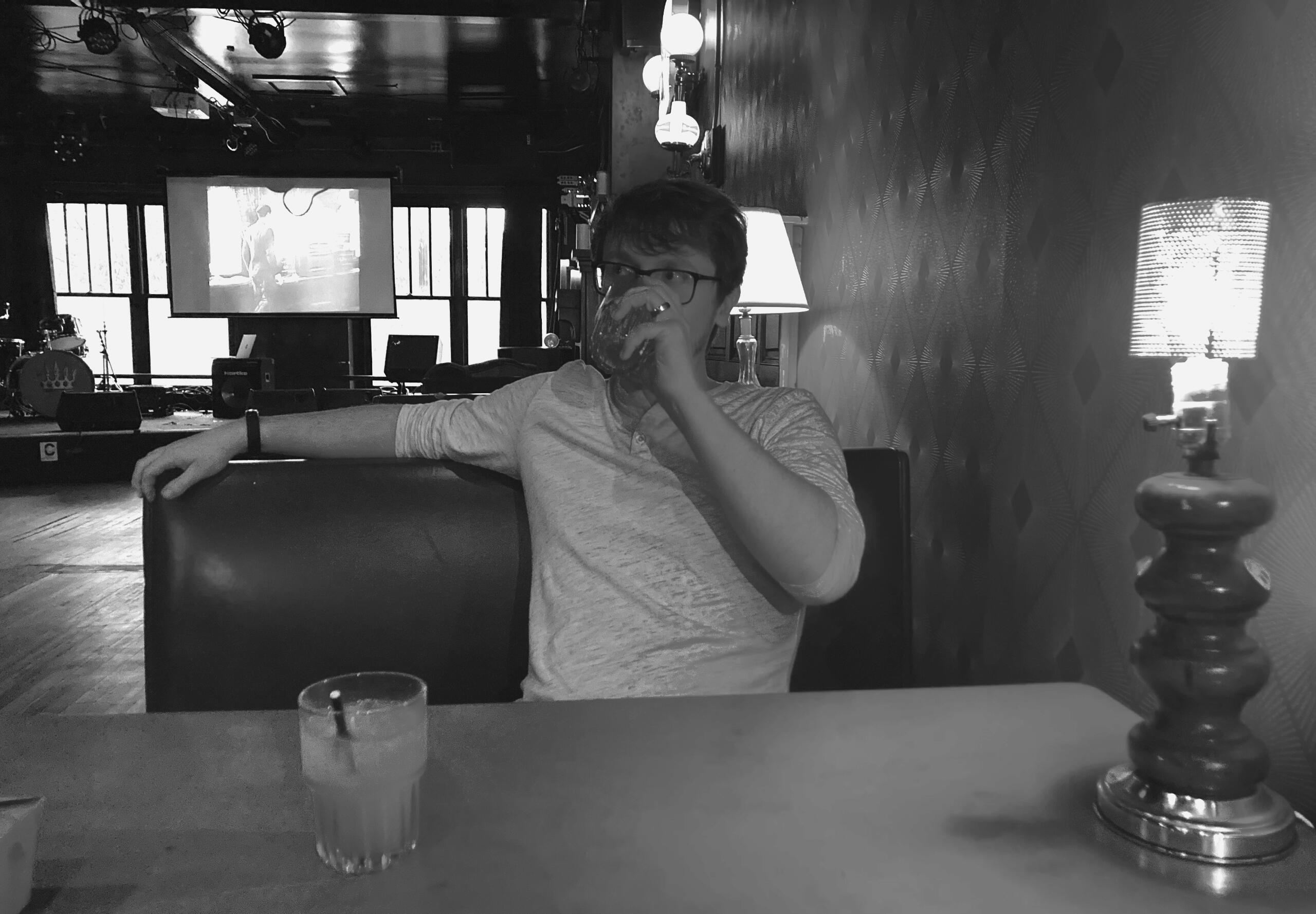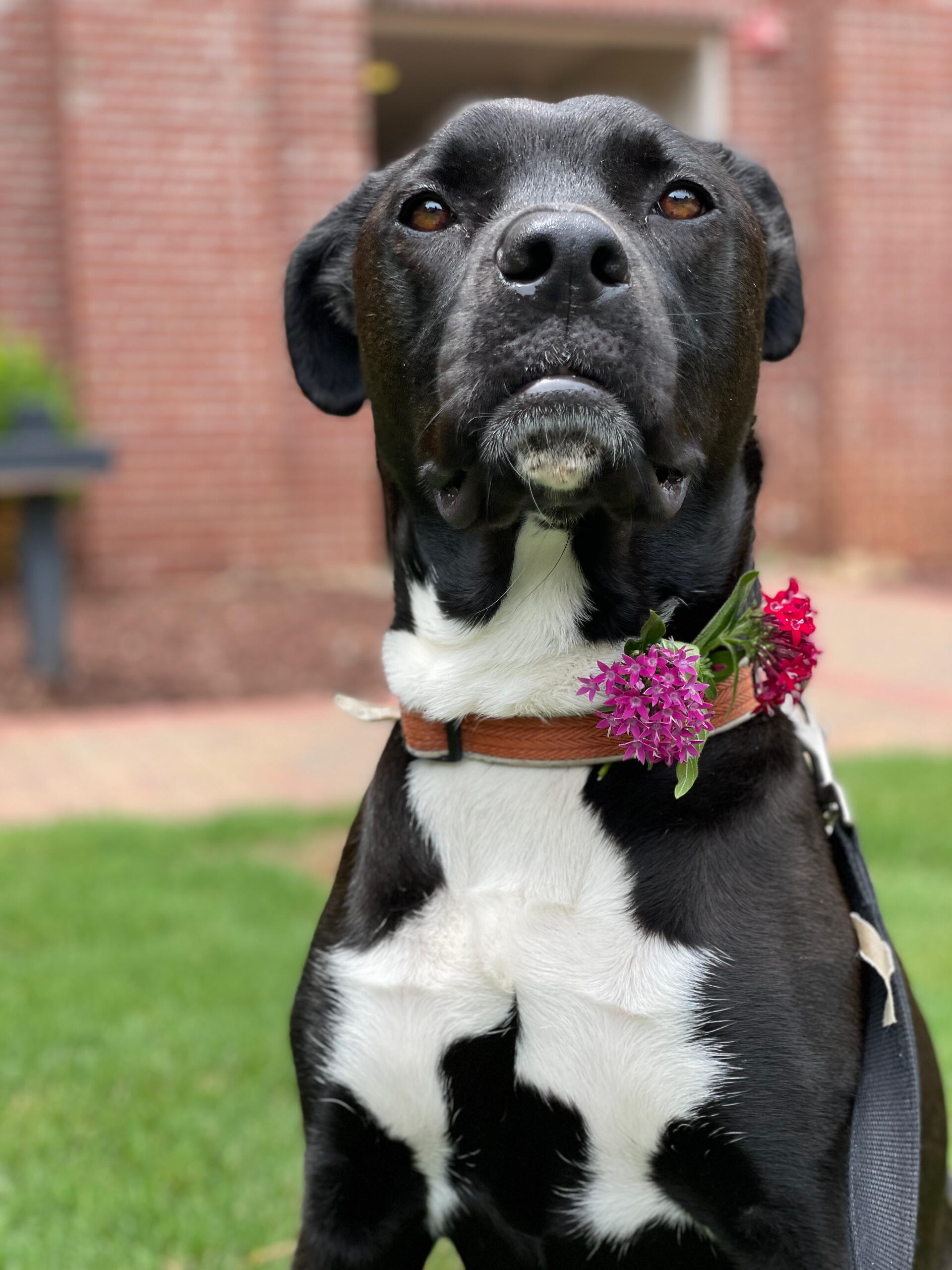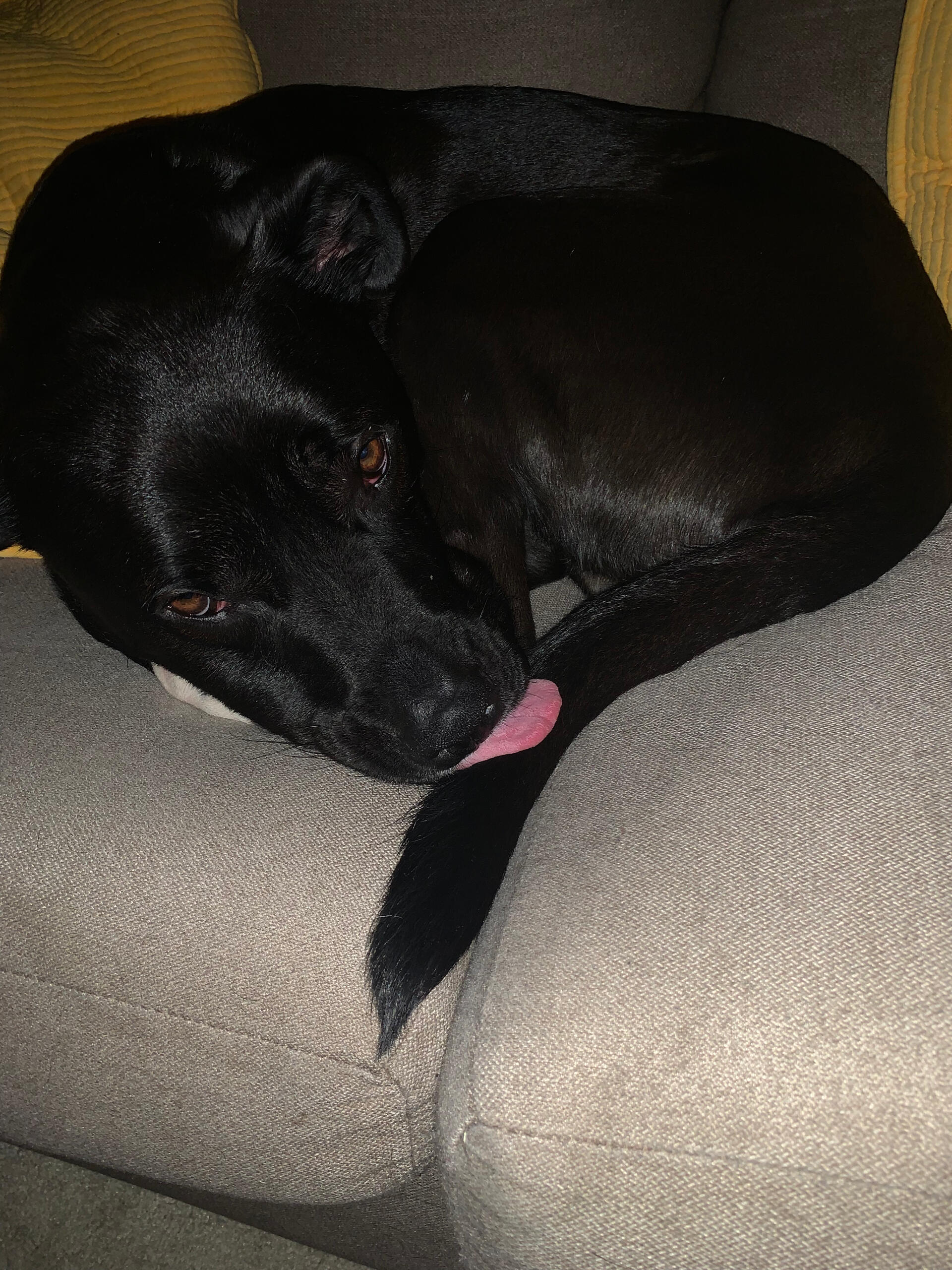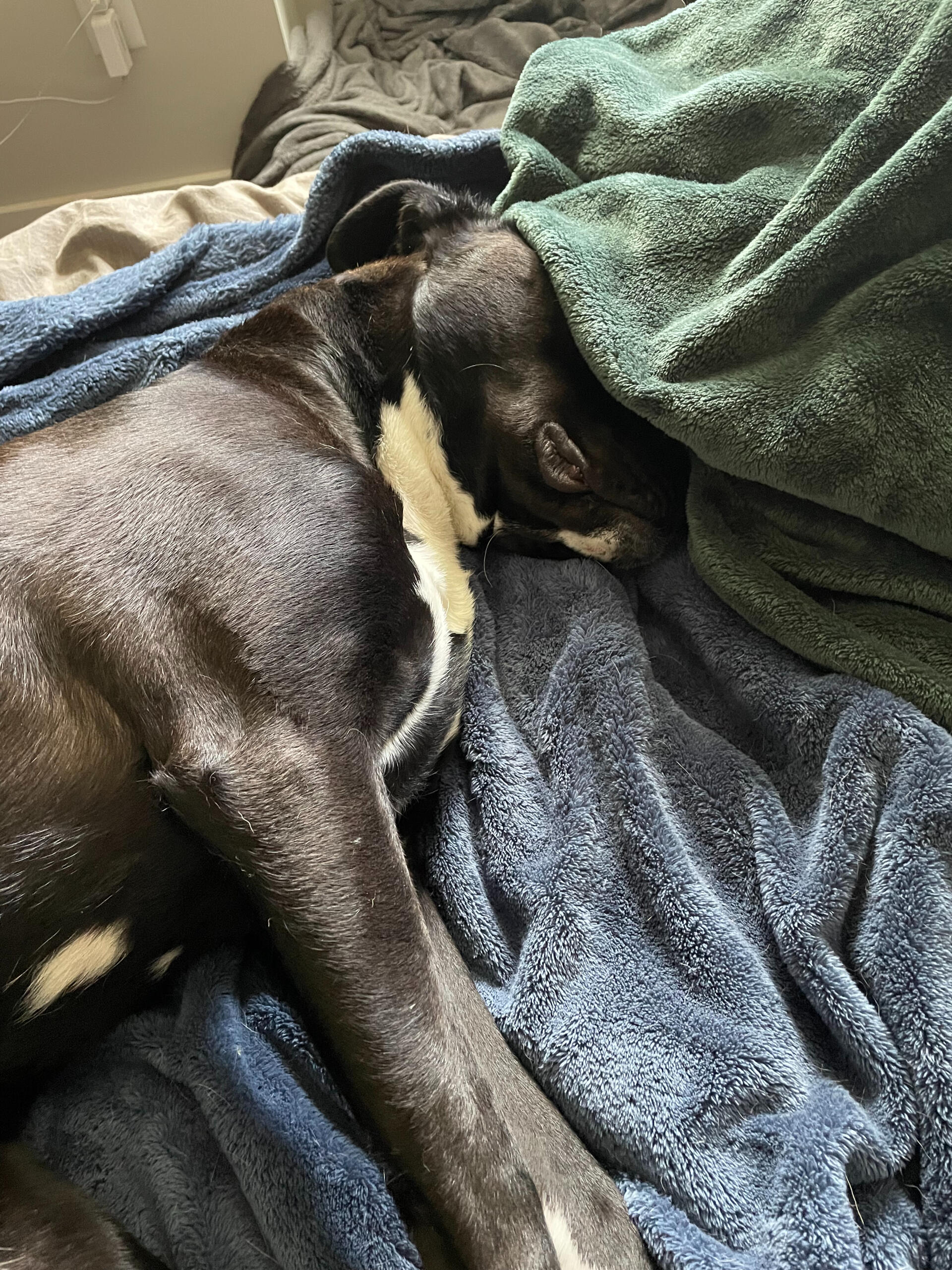Grant Collier Author Website.
Bio

Who Is Grant Collier?
I'm a self-described up-and-coming speculative fiction author. I'm interested in (and therefore write stories about) philosophy of mind, identity, AI/machine learning, exotic physics/time travel, and alternative political systems, among other things. In my spare time, I do research in ML/reinforcement learning, to the point where I'm pursuing a PhD in it, and it is technically my career. I live in North Carolina with my wife and our dog.
Sign Up For My Newsletter
Enter your email to be notified whenever I publish something new, or make an announcement. I will never send spam (four emails a year is my absolute maximum), nor will I ever sell your information. Announcements and/or blog posts are also archived in this section of the website.
A Medley of Updates And Announcements, Some Of Which Are Mildly Late
Wherein the title of the blog post is impressively self-explanatory.
The Best Version of Yourself: Influences and Recommendations
Wherein I discuss the behind-the-scenes of writing The Best Version of Yourself, and the works that inspired it.
Published Works
"It Grows Back," Short Story, Cast of Wonders, October 2025.
"The Best Version of Yourself," Novelette, Clarkesworld, July 2024.
-Locus Recommended.
-Reprinted in The Year's Top Robot and AI Stories: Sixth Annual Collection edited by Allan Kaster. 2025.
-Reprinted in Think Weirder: The Year's Best Science Fiction Ideas Volume 01 edited by Joe Stech. 2025.
Contact
Email: [email protected], or use the form included here. Don't hesitate to reach out; I'd love to hear your thoughts on my work, probably even if you hated it, depending on the degree to which that's the case.
Bluesky: My only official presence on normal social media. Sometimes I post things.
Goodreads: I sometimes review books/short story collections, and you can see me consistently miss my yearly reading goals.
Buy me a coffee: For if you loved a story and want to show your appreciation monetarily, which is always appreciated but never expected. (Note: this is actually my Venmo; the different name on the profile is a pseudonym I use for Venmo, other social media, official documents, and my day-to-day life).
You Mentioned In Your Bio That You And Your Wife Own A Dog. Is Your Dog Cute, And If So May I See A Picture?
Absolutely. Congratulations on making it to the secret section of the site. Here you go: you may see several.



A Medley of Updates And Announcements, Some Of Which Are Mildly Late
As it’s been over a year since my last blog post, I decided it’s time to finally make plural posts. It’s been a very eventful year: a few days ago, I passed my dissertation defense, and am now officially a Doctor. The writing of said dissertation is my current excuse for why this blog post is so belated: on the next post, I’ll have to use a different one.On to the announcements: they’re in chronological order, which is roughly an ascending order of importance.- I joined the SFWA. Doing so has been a personal aspiration of mine ever since I began writing seriously, so that’s very exciting to me at least, even if it’s a somewhat standard thing for published speculative fiction authors to do.- I have a Bluesky account now. I even make posts sometimes. It is my only official social media presence. You can follow me at @grantcollier.bsky.social-The Best Version of Yourself was included in the Locus Recommended Reading List, which I’m incredibly happy about. It also made it onto a smattering of peoples’ individual best-of-the-year lists, for which I feel equally honored. Several people also voted to nominate it for a Hugo award, but not enough times to make the nominees list or the longlist. The information on how many nominations it received (13) is actually only publicly available in the Administrators’ Report: a long PDF chronicling the committees’ decisions on how to correctly allocate miscast nominations, as someone accidentally nominated it for best novella, when it is in fact a novelette. So a sincere thanks to whomever that is, as without their vote I would not have known that I received any Hugo nominations at all.-The Best Version of Yourself is also being reprinted in several best-of anthologies! The first, The Year’s Top Robot and AI Stories: Sixth Annual Collection, edited by Allan Kaster, came out this past week. The second, Think Weirder: The Year’s Best Science Fiction Ideas, Volume 01, is out on October 30th. The third and final reprint has not, to my knowledge, been publicly announced as of yet, so I’ll refrain from announcing it here, but it is forthcoming at some point in the future.-As for the most exciting news: I have a new short story coming out imminently. It’s titled “It Grows Back,” and it’s a horror piece coming out as the Halloween episode of Cast of Wonders this year. It’s about a kid with particularly bad dreams.That’s all announcement-wise, for now. As to what writing projects I’m working on currently, there’s a large assortment, and I have no real sense for which of them will next see the light of day. I have a flash fiction piece about Neuralink-like technologies, a fantasy piece with what I think is a unique take on mimics, a longer science fantasy solarpunk-esque piece, and a hard science fiction centered on time loops. I also have a couple of stories that are currently too-thinly-veiled angry political screeds, and which need substantial edits in order to be imbued with sufficient literary merit for publication. Whatever I publish next may be any one of these listed projects, or very likely may be something completely unrelated to any of them. Whatever comes next, I’ll be sure to make another announcement about it here.I don’t yet know how to elegantly end blog posts. That is all I have to say
The Best Version of Yourself: Influences and Recommendations
I’ve always loved, in short story collections (or online), when authors include a couple of paragraphs accompanying each story, describing their process of writing it, how it came to be, and what other works of writing inspired them to create it. I always, in fact, wished that these accompanying blurbs were longer than they were. I’d particularly liked when these blurbs referenced other works, whether they be other stories or scientific literature, as I enjoy seeing my favorite authors talk about authors/topics that they themselves love.As a very newly published first author, then, I thought I’d make one of these blurbs of my own, and make it the length I’d always wished the other story-discussing author blurbs I’d read to be. I plan to do this, in fact, for each of my published work(s), whenever I get enough published to make those parentheses redundant.In case it needs to be said, thorough spoilers for The Best Version of Yourself from this point onward. I’d highly recommend reading it before reading any further in this blog post. Link here: https://clarkesworldmagazine.com/collier_07_24/The Best Version of Yourself was an amalgam of several independent story ideas, but the one which probably retained most of its DNA in the final product began because I got into an argument on the internet.Or, rather, because I attempted to get into an argument on the internet, and failed, as I’d arrived too late to the thread on which I’d commented, and therefore nobody, argument-prone or otherwise, responded to or upvoted my comment.That particular comment has been lost to time, but it was responding to a post defending the concept of ‘wireheading:’ that is, purposely hacking your brain through artificial (usually electronic) means to make yourself arbitrarily happy. This person argued that, in a hypothetical future wherein the practice was fully safe and sustainable, what harm could there be in doing it permanently? Any unhappiness brought on by your loved ones losing access to your company could, of course, be more-than-mitigated through the joy they could experience if they were to simply join you in wireheading-induced bliss.Someone who has read The Best Version of Yourself will recognize this argument, and also could likely guess that I don’t quite buy it. However, I do think it’s wrong in an interesting way, and thus wrote a very long comment about it. To my recollection, I said it wasn’t robust to epistemological perturbations: that if the OP was even a little bit less than 100% certain about any of numerous ethical or factual assumptions about the way the world works in this scenario, then they were risking collapsing the world of possible futures entailed by our current complex society down to one, singular, dismal future. A future that was in fact suboptimal, and therefore objectively bad (under their staunch Utilitarian framework (not that I entirely oppose Utilitarianism; I tend to support Utilitarianism in most cases, but am wary of staunchness)).Anyway, this comment didn’t get any of the reception that I’d felt it had merited, but I’d put a lot of effort into it, and so I let those thoughts simmer for a couple years until they turned into a story.Writing about wireheading I pulled, consciously or otherwise, from other works I’d read featuring it or similar concepts. An obvious classic that comes to mind is The Giver by Lois Lowry, which I had not read in over a decade when I began writing this, but was very influential to me back in the day, and I’m sure had some influence. The Doctor Who episode Gridlock (in season 4 of the reboot) also explores a similar premise, but it’s not a part of its plot that’s given much time; in fact I’d forgotten the relevance until doing a rewatch later when I’d already finished the first draft of the story, so the influence is probably minimal.In terms of larger influences, The Woman Who Destroyed Us by S. L. Huang is a fantastic novelette that also follows a woman spurred to extreme action in response to a mind-altering treatment she feels took a family member away from her. The specifics of the way this shakes out are rather different, particularly with regards to how extreme the treatment itself is, but in retrospect I definitely channeled some of the spirit of this story when writing mine. Chaff by Greg Egan, while presented very differently to either my story or Huang’s, is another great story that explores a similar issue, and is similar to The Best Version of Yourself in that the wireheading in question is aesthetically biological, rather than technological.As the version of wireheading I present is rather extreme, I also drew unconsciously from several society-retreating-into-simulation stories I’d read. Most notably here is Ken Liu’s Staying Behind, which I didn’t begin reading until I was almost done with my first draft, but which I loved so much that it made me a little jealous of how good of a writer Ken Liu is. Something similar happened with Diaspora by Greg Egan: though humanity’s retreat into software is addressed from a very different perspective in this novel, I’m recommending it anyway just because it’s a fantastic book, and everyone should read it regardless.The second story idea The Best Version of Yourself evolved from involved a robot who had lived long enough to experience every possible sensory experience it could, given its sensory architecture, and thus was having a hard time telling what was real anymore. I think it was initially a chess-playing robot? This was the most half-baked of my ideas that made it into this story. It mostly influenced the early Eudaimon bits about optimizing over the sensory landscape. These sections were initially a lot more whimsical and Douglas-Adamsy. Believe it or not, I’d started out thinking I was writing a light, humorous piece, without any death or body horror. That tone went out the window fairly quickly.This idea of treating mental landscapes as a state space that can be optimized over stuck around as an important part of the final story. The story I’ve read that most clearly inspired this idea is Unstable Orbits In The Space of Lies by Greg Egan (I was on a Greg Egan kick while drafting this story, and in fact still am).The final story idea that amalgamated its way into this piece was one about ADHD. I’d had a story structure in mind wherein I would take the reader on the emotional journey of inexplicably forgetting something terrible and important alongside a neurodivergent character. I wanted to portray that realization from the inside, rather than from the outside, where it can appear simply like a lack of caring. I’d tried to draft up a story with this structure in the past wherein the central metaphor-carrying character was someone who had trouble maintaining a single train of thought because he was born with his brain hooked up to the internet. I could never get that story going though, and semi-abandoned it.When drafting The Best Version of Yourself, needing a character flaw to give to Maria’s mom, I latched onto ADHD: it was literally a split-second decision made in first-draft mode. I then realized that Maria should have inherited it, and this spiraled until I accidentally made it a substantial part of the story’s core identity. Once I realized and eventually embraced this, I decided Maria’s story was a perfect vehicle for this person-forgets-key-thing-even-though-they-did-everything-right-from-their-perspective-which-is-the-reader’s-perspective-as-well story beat I was wanting to write. Previously, then, in my very first outline, Maria doesn’t even forget the tree. She just plants it and leaves, The End. I’m so incredibly glad that that’s not how the story actually turned out: I think that would be a much worse story than what I ended up with.I don’t have any fiction recommendations to make here, as I actually don’t remember having ever read a story centering ADHD, at least not as an adult. I did once listen to a talk, about how adults with ADHD have incredibly high rates of ‘recidivism’ compared to other mental illnesses: that is to say, they often stop taking medication and relapse back into the height of their symptoms, despite the fact that the medication itself had been working well for them with little to no side effects. I don’t know what the talk was, or who gave it, but upon looking into it, I suspect it was Dr. William Dodson, as he seems to be one of the most prominent experts in the field, and this article https://www.additudemag.com/medication-nonadherence-adhd-adults-solutions/
by him echoes many of the talking points I remember. I can’t be sure, however.This talk resonated with a lot of my own experiences, of feeling like ADHD was supposed to be something one put behind oneself once one became sufficiently adult, or tried really hard, and that medication was a temporary set of training wheels, to be eventually left behind for a more ‘natural’ state of mind. I never devoted much thought to what the word ‘natural’ really meant here, or why it was supposedly inherently better than any state of being achievable via medication. I’d just had this sense that I could never really become my best self unless I could eventually fully transcend the need for medication through sheer willpower.In writing this story, then, I took a lot of toxic thought patterns like this that I’ve had to work to leave behind, and plopped them all into Maria’s head. I wanted to put the reader in the headspace of someone with a strong desire to quit their perfectly-functional and perfectly-accessible meds, and show them what that looks like from the inside. Not necessarily for readers who don’t know what that’s like, but rather for readers who do.A few additional stray thoughts:The name “Eudaimon,” as some readers have picked up on, comes from Aristotle’s concept of Eudaimonia as the ultimate virtue/goal towards which all other goals are pointing, as described in Nichomachean Ethics. “Nirvana” in this story is similarly based on a reference, though it may be too obvious of a reference to even merit mentioning: I’m referring, of course, to the band.The names on the gravestones/solar panels are all people I know in real life. Most of them are in the writing group who first gave me feedback on this story, and to whom I am forever grateful.I have never been to Acadia National Park, but really hope that doesn’t show. I want to go, and will eventually. If someone with personal experience of the park, or any of the other real places mentioned in the story, finds a factual error, I probably want to know about it. I initially picked Acadia just because it’s a well-known national park with a climate that’s suitable for growing both aspens and apple trees.I recognize there is a risk with publishing an essay detailing my thoughts on this piece, and motivations for writing it: namely, I know that art resonates in strange and unique ways in different people, and every experience of reading a story is something that the reader co-creates with the author. Thus, there are doubless several poignant, wise, and valid themes/messages in my story that I myself never thought to put in there. As such, there very well may be people reading this analysis hoping for me to speak to the particular theme or focus that they drew from the story, and they may feel let down if, through omission, I imply that their favorite insight wasn’t “really” there.I’d like to say that, if this is your experience, then just because I didn’t validate your reading of the story doesn’t mean it isn’t valid. In fact you should feel more proud of your interpretation in light of this: If I only stumbled backwards into whatever meaning you took from the story, then that means it was your wisdom, your insight, that was in you all along, and by reading the story you simply revealed it to yourself. Which I personally think is even better.Anyway, that’s all of my thoughts on The Best Version of Yourself, or near enough to all for now. Thanks for reading, both this essay and the story itself (you did read the story itself, didn’t you? Whatever are you doing reading this if you didn’t??) Your support means a lot. Sign up for my newsletter if you want to be notified whenever I make another post or write another story. Cheers everybody.—Grant